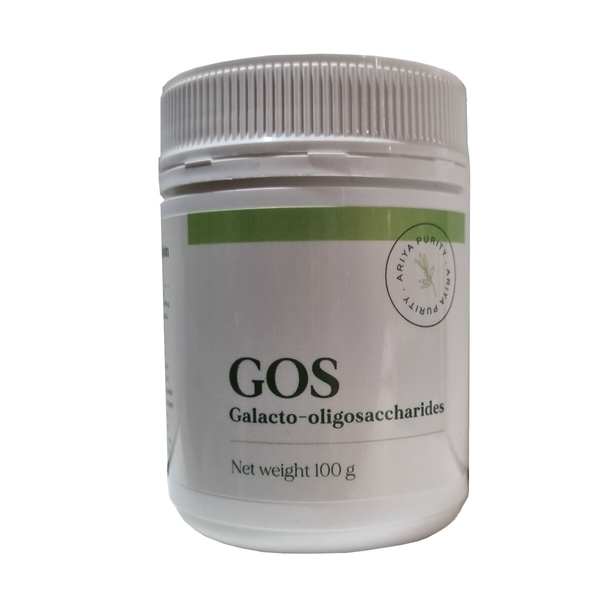_vital_ly.png)
Galacto-oligosaccharides (gos)
Background
Galacto-oligosaccharides (GOS) are prebiotics made up of plant sugars linked in chains. They're found in dairy products, beans, and certain root vegetables.
Prebiotics act as food for "good" bacteria in the intestine. They pass undigested into the colon where they increase bowel mass and promote growth of certain bacteria.
People use GOS for eczema, colic, hay fever, food allergies, constipation, obesity, and many other conditions, but there is no good scientific evidence to support most of these uses.
Don't confuse GOS with other prebiotics, such as fructo-oligosaccharides, inulin, and polydextrose. Also, don't confuse prebiotics with probiotics such as lactobacillus, bifidobacteria, and saccharomyces, which are live organisms.
Prebiotics act as food for "good" bacteria in the intestine. They pass undigested into the colon where they increase bowel mass and promote growth of certain bacteria.
People use GOS for eczema, colic, hay fever, food allergies, constipation, obesity, and many other conditions, but there is no good scientific evidence to support most of these uses.
Don't confuse GOS with other prebiotics, such as fructo-oligosaccharides, inulin, and polydextrose. Also, don't confuse prebiotics with probiotics such as lactobacillus, bifidobacteria, and saccharomyces, which are live organisms.
Safety Safety definitions
When taken by mouth: GOS are commonly consumed in foods, including dairy products, beans, and certain root vegetables. It is possibly safe to take supplemental GOS in doses up to 20 grams daily for up to 30 days. Side effects are generally mild and may include gas, bloating, stomach cramps, and diarrhea.
Children: GOS are possibly safe when added to breast milk or infant formula at concentrations of no more than 7.2 grams/L and consumed as needed for 4-12 months. Side effects might include constipation or diarrhea.
"Auto-immune diseases" such as multiple sclerosis (MS), lupus (systemic lupus erythematosus, SLE), rheumatoid arthritis (RA), or other conditions: GOS might cause the immune system to become more active. This might increase the symptoms of auto-immune diseases. If you have an auto-immune condition, it's best to avoid using GOS as medicine until more is known.
Allergies: GOS might cause allergic reactions in people who are allergic to a species of dust mite called Blomia tropicalis.
Special Precautions & Warnings:
Pregnancy and breast-feeding: GOS are commonly consumed in foods. GOS are possibly safe when taken by mouth as medicine in doses of 4.5 grams daily, starting at 25 weeks of pregnancy and continuing until delivery.Children: GOS are possibly safe when added to breast milk or infant formula at concentrations of no more than 7.2 grams/L and consumed as needed for 4-12 months. Side effects might include constipation or diarrhea.
"Auto-immune diseases" such as multiple sclerosis (MS), lupus (systemic lupus erythematosus, SLE), rheumatoid arthritis (RA), or other conditions: GOS might cause the immune system to become more active. This might increase the symptoms of auto-immune diseases. If you have an auto-immune condition, it's best to avoid using GOS as medicine until more is known.
Allergies: GOS might cause allergic reactions in people who are allergic to a species of dust mite called Blomia tropicalis.
Effectiveness
NatMed Pro rates effectiveness based on scientific evidence according to the following scale: Effective, Likely Effective, Possibly Effective, Possibly Ineffective, Likely Ineffective, Ineffective, and Insufficient Evidence to Rate.
Possibly effective Effectiveness definitions
- Eczema (atopic dermatitis). Giving formula fortified with GOS to infants at risk for allergies seems to help prevent eczema from developing.
- Excessive crying in infants (colic). Giving a formula that contains prebiotics, including GOS, to infants with colic might help reduce crying.
- Inability to properly digest the sugar lactose (lactose intolerance). Taking GOS by mouth might improve symptoms like stomach pain, cramps, and bloating in people who are lactose intolerant.
Possibly ineffective Effectiveness definitions
- Hay fever. Feeding a formula containing GOS and probiotics to infants at risk for allergies doesn't seem to reduce the risk of developing hay fever.
- Food allergies. Feeding a formula containing GOS to infants at risk for allergies doesn't seem to reduce the risk of developing food allergies by the age of 1-2 years.
- Upper airway infection. GOS don't seem to help prevent upper airway infections or reduce their symptoms in healthy infants or college students.
Dosing & administration
GOS have most often been used by adults in doses of 5-20 grams by mouth daily for up to 30 days. They've also been added to infant formula. Speak with a healthcare provider to find out what dose might be best for a specific condition.
Interactions with pharmaceuticals
Medications that decrease the immune system (Immunosuppressants)
Interaction Rating=Moderate Be cautious with this combination.
GOS can increase the activity of the immune system. Some medications, such as those used after a transplant, decrease the activity of the immune system. Taking GOS along with these medications might decrease the effects of these medications.
Interactions with herbs & supplements
There are no known interactions with herbs and supplements.
Interactions with foods
There are no known interactions with foods.
vital.ly has licensed monographs from TRC Healthcare.
This monograph was last reviewed on 14/02/2025 11:00:00 and last updated on 08/10/2015 03:02:21. Monographs are reviewed and/or updated multiple times per month and at least once per year.
Natural Medicines disclaims any responsibility related to medical consequences of using any medical product. Effort is made to ensure that the information contained in this monograph is accurate at the time it was published. Consumers and medical professionals who consult this monograph are cautioned that any medical or product related decision is the sole responsibility of the consumer and/or the health care professional. A legal License Agreement sets limitations on downloading, storing, or printing content from this Database. No reproduction of this monograph or any content from this Database is permitted without written permission from the publisher. It is unlawful to download, store, or distribute content from this site.





